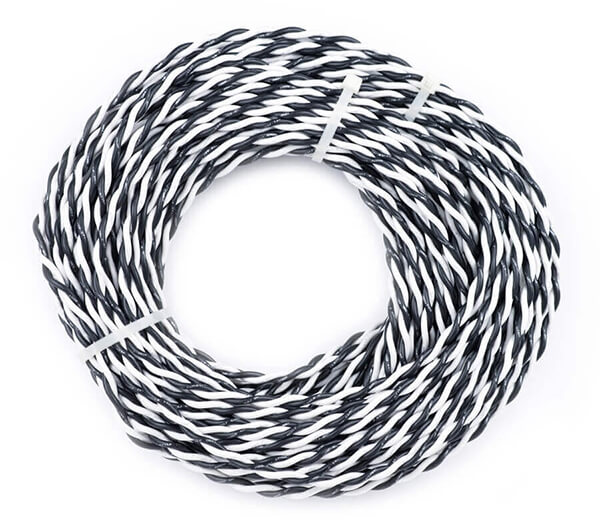CT-WIRE-100
$220.00
Current transformer extension wire
- 100 foot coil
- #20 AWG copper
- Twisted black and white pair
- 600 Volt
- UL 1015
Description
Overview
There are occasions when longer current transformer (CT) lead wires are needed. If the standard 8-foot (2.4 meter) leads are not long enough, they can be extended to 100 feet (30 m) or more, especially if you keep the wires away from electrically noisy equipment, such as variable speed drives (inverters). To minimize power line noise from interfering with sensitive CT signals, extension wires should be run in conduit without any power conductors. If you are using UL listed CTs, then you must use 20 AWG wire for any extension to preserve the UL listing.
Splicing
When the 8-foot lead wires on standard stock CTs are not long enough, you can extend them by splicing on additional wire.
- Avoid creating large loops or gaps between the white and black wires at the junction point, because this can increase electrical interference.
- Twist-on wire connectors (wire-nuts) can be used but only if they are rated for connecting the stranded wires. Do not use wire nuts (typically red or yellow sizes) used for electrical work; they are too large to make reliable connections with smaller stranded wires! For reliable connections, be sure to follow the manufacturer’s instructions.
- Butt splice and other styles of crimp connections can work well if a ratcheting crimping tool specifically designed for the crimp connector is use. Caution: low-cost, general purpose crimping tools do not always make reliable connections. After crimping, tug on the wires to make sure that they do not pull out of the crimp.
- The most reliable connection is a soldered connection with heat shrink tubing insulation. Unfortunately, solder connections are very time consuming.
Wire specifications
- 100 foot coil
- 20 AWG
- Twisted pair, 1 twist per inch
- 600 Volt
- UL 1015
![]() WARNING:This product can expose you to chemicals including Diisononyl Phthalate (DINP), which is known to the State of California to cause cancer. For more information go to: www.P65Warnings.ca.gov
WARNING:This product can expose you to chemicals including Diisononyl Phthalate (DINP), which is known to the State of California to cause cancer. For more information go to: www.P65Warnings.ca.gov



